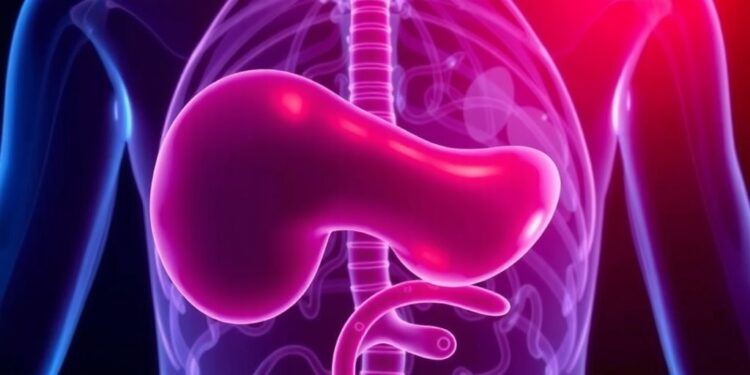Statins, a widely prescribed class of drugs primarily used for lowering cholesterol, have gained attention in recent years for their potential benefits beyond cardiovascular health. A new cohort study published in JAMA Internal Medicine sheds light on the intriguing relationship between statin usage and the risk of hepatocellular carcinoma (HCC), the most common type of primary liver cancer. Researchers explored how these medications may have a protective effect, particularly in patients afflicted with chronic liver disease. This exploration further cements the role of statins in clinical practice, especially for individuals at increased risk of liver complications.
Liver disease represents a significant global health burden, leading to a high incidence of morbidity and mortality. Among liver pathologies, hepatocellular carcinoma is particularly concerning, given its aggressive nature and often late diagnosis. With chronic liver conditions like hepatitis B and C infections, fatty liver disease, and alcohol-related liver disease elevating the risk of developing HCC, the medical community seeks innovative strategies to manage these risks and implement preventive measures. Statins may offer a path forward in this endeavor.
The study investigated a cohort of patients diagnosed with chronic liver disease, monitoring their statin usage and subsequent health outcomes over time. Importantly, patients who regularly used statins exhibited a significantly reduced incidence of hepatocellular carcinoma when compared to non-users. This observation suggests that the anti-inflammatory and lipid-lowering properties of statins could play a critical role in inhibiting cancerous transformations within liver cells.
In addition to reducing the risk of HCC, the cohort’s analysis revealed that statin users were also less likely to experience hepatic decompensation—a severe decline in liver function that can lead to life-threatening complications. This finding is particularly notable because hepatic decompensation significantly complicates treatment options and deteriorates overall patient prognosis. Therefore, the potential dual benefit of statins provides a compelling reason for clinicians to consider these medications in managing patients with chronic liver diseases, to both prevent cancer and maintain liver function.
The pathophysiological mechanisms underlying the potential anticancer effects of statins are complex and involve various biological pathways. Statins exert their effects primarily via inhibition of HMG-CoA reductase, an enzyme critical in the cholesterol synthesis pathway. This inhibition also impacts the mevalonate pathway, leading to downstream effects that might reduce inflammation, alter cellular proliferation, and promote apoptosis in malignantly transformed cells.
Moreover, emerging research indicates that statins may enhance the immune response to tumors. By modulating immune cell activity and potentially improving the efficacy of immunotherapies, statins could serve as adjunct treatments for patients with liver cancer, amplifying the immune system’s ability to target and destroy cancerous cells. These findings call for a closer examination of how established medications can be repurposed to address oncological needs, particularly within populations at risk.
The implications of this study extend beyond the realm of hepatology and oncology, entering the broader dialogue on pharmacological repurposing and patient-centered care. As healthcare providers strive to optimize treatment paradigms, the integration of statins into standard care regimens for patients with chronic liver disease may enhance outcomes while minimizing risks. With evidence suggesting broader benefits, a reevaluation of statin recommendations might be warranted.
As with all research, these findings must be interpreted with caution. The cohort study design, while valuable, does not establish causation but only association; thus, randomized controlled trials are necessary to definitively prove the effectiveness of statins in preventing hepatocellular carcinoma. Future studies with rigorous methodologies should aim to confirm these findings and explore the underlying biological mechanisms further.
Challenges remain in translating these findings into clinical practice, particularly around medication compliance, patient education, and careful monitoring for potential side effects of statin therapy. Adverse reactions such as myopathy and liver enzyme elevations, although infrequent, necessitate thorough patient evaluation and discussion regarding the risks and benefits of initiating statin treatment.
In conclusion, this study presents an encouraging perspective on the role of statins in hepatology, particularly in mitigating the risks associated with hepatocellular carcinoma and hepatic decompensation. As the body of evidence grows, the medical community may witness a paradigm shift in how chronic liver diseases are managed, leading to improved patient outcomes and quality of life. The integration of statins into conventional therapy regimens could herald a new era of preventive medicine, where existing medications are utilized to combat not only their traditional indications but also emerging health threats.
Further inquiry is essential as researchers refine their understanding of how statins can serve multifaceted roles in preventing disease progression and improving overall liver health. As this knowledge proliferates, healthcare professionals and researchers alike must collaborate closely to harness the full potential of statins and evolve treatment strategies that address the critical needs of patients with liver disease.
In summary, while the study highlights significant findings regarding statins’ protective roles against hepatocellular carcinoma and hepatic decompensation, ongoing research is key to understanding the implications, ensuring that patients receive comprehensive, effective care tailored to their unique health challenges.
Subject of Research: The protective role of statins in preventing hepatocellular carcinoma and hepatic decompensation in patients with chronic liver disease.
Article Title: Statins and Their Potential Role in Reducing Hepatocellular Carcinoma Risk.
News Publication Date: [Insert Date].
Web References: [Insert Relevant Links].
References: [Insert Scholarly References].
Image Credits : [Insert Image Credits].
Keywords: Statins, Hepatocellular Carcinoma, Chronic Liver Disease, Hepatic Decompensation, Preventive Medicine, Cohort Study, Oncology, Pharmacological Repurposing.




